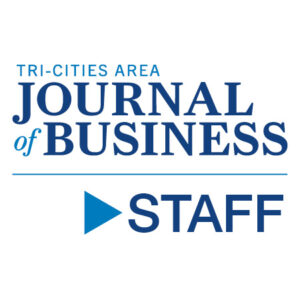
Home » Banking & Investment Briefs – July 2021
Banking & Investment Briefs – July 2021

July 15, 2021
Walmart debuts cash payment platform
Walmart is teaming with the PayNearMe mobile payments app to let customers pay utility, rent, car payments and other bills in cash at the same place they shop for groceries and household items.
The program, which rolls out in August, will let cash customers show a scannable code on their smartphone at the store’s MoneyCenter desk, pay with cash and then collect a receipt that confirms a payment has been made. The system distributes funds electronically to the recipients.
Michael Kaplan, chief revenue officer and general manager for PayNearMe, said the service caters to the people who prefer or need to pay bills in cash.
PayNearMe is partnering with Green Dot (NYSE: GDOT) to enable growth.
Baker Boyer is a Top 200 Community Bank, again
Walla Walla-based Baker Boyer ranked No. 91 on American Banker magazine’s “Top 200 Publicly Traded Community Banks” for 2021, its 14th consecutive appearance on the list.
More than 600 institutions were considered.
Baker Boyer was founded in 1869 and marked its 150th anniversary in 2019. It is the oldest independently-owned community bank with seven branches, including wealth management and business banking offices in Yakima and Kennewick. It has 190 employees and more than $700 million in assets.
Gesa grants, debit cards for Local Heroes
Gesa Credit Union has launched a $100,000 Local Heroes grant program in tandem with a new debit card that supports health care workers.
The Richland-based financial institution will award grants of up to $5,000 to organizations that support local heroes, including firefighters, law enforcement, teachers and veterans in Washington.
Gesa kicked off the program with $1,000 “spark” donations to the Foundation for Edmonds School District, Walla Walla Fire Department, Volunteers of America Eastern Washington and Northern Idaho, the Pasco Police Department Foundation and Wellness House in Yakima.
To qualify, applicants must provide proof the grant money will directly support one of Gesa’s outlined Local Heroes populations in a community where Gesa has a physical office or branch.
Go to gesa.com/community/local-heroes.
In a related move, Gesa has established a Healthcare Heroes debit card. Each time the card is used, Gesa will make a donation to organizations that support healthcare workers through the Local Heroes grant program. Gesa members can request the card at no cost by mail or in-person at any branch.
State offers K-12 student finance education lessons
If your kids are complaining they’re bored now that school is out, consider helping them develop their personal finance prowess.
The Washington State Department of Financial Institutions offers a financial education resource page for parents and educators of K-12 students.
Research from the University of Cambridge indicates money habits – whether “spenders” or “savers” – is set around
age 7, and that it becomes more difficult with each passing year to change those habits.
“We want to make sure Washington youth have every opportunity to develop strong financial knowledge and habits as they grow,” said DFI Director Charlie Clark in a news release. “This new resource page builds on what DFI’s financial education and outreach team created last year to help families and educators with the learn-at-home transition.”
Find the activity pages at dfi.wa.gov/financial-education/fun-clusters. They are broken into the following categories: K-2, 3-5, 6-8 and 9-12 and include web-based and printable documents, videos and games.
DFI advises industry to brace for climate change impacts
On the heels of a record-breaking heat wave in the state, the Washington State Department of Financial Institutions (DFI) issued an alert to financial services industries emphasizing the important role they play in addressing climate change as a systemic risk.
“Our financial systems operate in an increasingly complex world in which systemic risks magnify threats to our economic stability and vitality,” DFI Director Charlie Clark notes in the alert. “The purpose of this alert is to … emphasize and affirm the importance of responding to climate change as a systemic risk, and to begin discussions with stakeholders on how DFI can support its regulated entities in efforts to better understand and address climate change.”
“While DFI is not today announcing new rules or guidance,” Clark continued, “we ask that Washington State financial institutions, and state-chartered depositary institutions in particular, begin discussions about how to integrate climate change risks into their governance, risk management, and strategic plans.”
The DFI is working with Ceres, a sustainability focused nonprofit organization, to provide updates and offer best practices.
Business Briefs Banking & Investments
KEYWORDS july 2021





